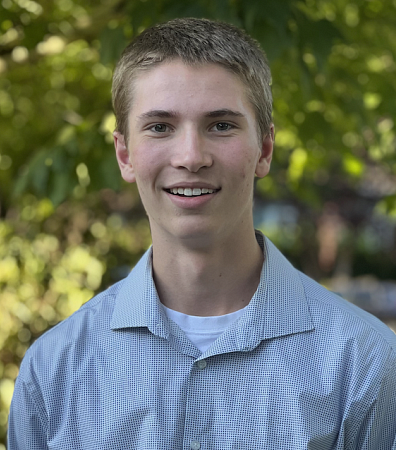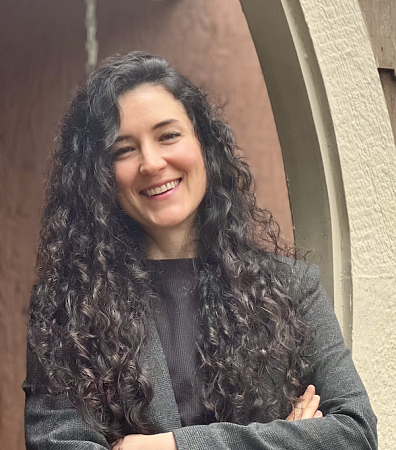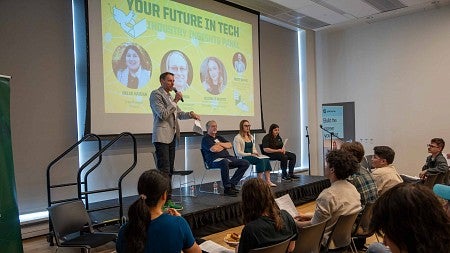At the UO, Data Science students and faculty harness the power of data to unravel mysteries, predict trends and drive impactful change. Students have access to state-of-the-art facilities and resources, including high-performance computing clusters and extensive datasets, enabling them to explore and analyze real-world problems across diverse domains. Through collaboration with industry and academic partners, the Data Science Department fosters a vibrant and dynamic learning environment, preparing students for a successful career in data science.
NEW DATA SCIENCE JOBS PROJECTED BY 2031
Class of 2024
Kyle Humbert
Data Science & Accounting Dual Major, Accounting Analytics Domain
When Kyle Humbert began his college career, he was studying accounting but was eager to integrate his programming skills. UO’s data science program, with an emphasis in accounting, was a perfect fit. For Humbert, data science opens doors for dynamic career possibilities.
Humbert's interests remain centered on his business goals and opportunities. After graduation, he hopes to build internal tools for an accounting firm.

What you can do with a degree in Data Science
A mastery of big data prepares you for a next-generation career. Data scientists are essential players in nearly every industry, ranging from auto production to aerospace, healthcare and biotech, as well as investment banking, insurance, government, and even non-profit management.
At the University of Oregon, we train data scientists to be wholistic researchers, capable of crossing disciplines and breaking boundaries. Our data scientists consider not only what can we do with data – but what should we do.
With a UO degree in data science, you'll have a key to a career for years to come. In fact, search “data science” on Indeed and you’ll see more than 10,000 opportunities around the country. Glassdoor, a leader in workforce analysis, estimates the starting salaries for data science jobs between $81k-149k – for entry-level jobs.
For those looking for a master’s degree or a doctorate, the UO’s training in quantitative and computational skills makes graduates particularly attractive to an advanced degree program.

The Data Science Major
The Data Science undergraduate program teaches computational, statistical, and inferential data science skills side-by-side with applied knowledge in one of eleven different areas:
- Accounting Analytics
- Biology
- Cultural Analytics
- Earth Sciences
- Economics
- Geography
- Linguistics
- Marketing Analytics
- Music Technology
- Physics
- Sociology
Our unique interdisciplinary program teaches you how to extract knowledge and insight from data, empowering you to make decisions earlier, faster, better. When you graduate, your understanding of applied data science techniques, framed within the liberal arts, will help launch you directly into the workforce.
Once a Duck, Always a Duck

Lindsey Uribe '23
Data Science Major, Biology Domain, Mathematics Minor
Lindsey Uribe was interested in data science long before she knew it was a viable career option. She had always found working with numbers to be satisfying. But she also had an interest in biology. When she began looking for an academic program that might combine the two, she found a match with UO’s Data Science program. Lindsey graduated in Winter 2023 with a data science degree and a minor in mathematics. She then secured a full-time position as a data scientist with Dexcom, the company where she had interned.
Faculty Spotlight

Rori Rohlfs
Associate Professor of Data Science
Rori Rohlfs, the first tenure-track faculty member in the new Department of Data Science, has built her reputation at the intersection of biology and computer science. She comes to UO with deep data science experience and a passion for its application to social justice.
"There's no avoiding social context when we’re doing science,” she says. "It’s clear in the questions we ask and our approaches to those questions, who we include on our scientific teams, what assumptions we make, and what assumptions we examine. How data science informs social justice is integral to this discussion.”




